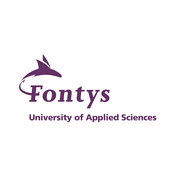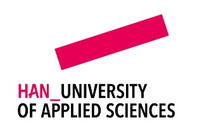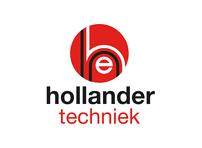Smart Mechatronics and Robotics
Saxion Smart Mechatronics and Robotics is gericht op de ontwikkeling van robot- en mechatronische technologieën en onderzoekt tegelijkertijd de effectiviteit van de bijbehorende ontwerpmethodologie voor systeemtechniek.
Onze groep richt zich op missiegedreven (SDG's 2, 4, 7, 8, 9, 12, 16) en toepassingsgericht samenwerkend onderzoek op het gebied van mechatronica, robotica en kunstmatige intelligentie. Wij maken gebruik van de nieuwste wetenschappelijke inzichten en state-of-the-art technologieën om innovatieve oplossingen te ontwikkelen voor urgente maatschappelijke uitdagingen met behulp van systeemtechnische benaderingen. Wij valoriseren onze nieuwe praktijkkennis via onderwijs (talentontwikkeling) en ondernemerschap (nieuw product of dienst via bestaande partner of nieuwe spin-off of spin-outs).
Onze expertise
Onbemande robotsystemen
Deze integratieonderzoekslijn richt zich op de ontwikkeling van een nieuwe generatie intelligente onbemande robots (in de lucht, op de grond, aan de oppervlakte en onder water) die autonoom of in samenwerking ongestructureerde omgevingen kunnen verkennen voor het verzamelen van gegevens of het manipuleren van doelen.
Slimme industriële systemen
In deze onderzoekslijn ontwikkelen en integreren we realtime robotica, visie en geautomatiseerde mechatronische systemen om innovatieve, geautomatiseerde en collaboratieve oplossingen voor de Smart Industry te creëren.
Sensoren & Perceptie
Deze onderzoekslijn houdt zich bezig met het verkrijgen van metingen van verschillende sensoren en het extraheren van benodigde robotinformatie (toestand en fysieke eigenschappen van de robot, omgeving of doel) uit de verkregen gegevens.
Onze focus
Om de maatschappelijke impact van onze activiteiten te maximaliseren, voeren wij missiegedreven onderzoek uit. De missies zijn gekoppeld aan de toepassingsgebieden waarop onze onderzoeksactiviteiten primair gericht zijn. Ze leveren een directe bijdrage aan de Duurzame Ontwikkelingsdoelstellingen (SDG) van de Verenigde Naties.
Sensoren & Perceptie
Sensoren en perceptie zijn zeer dominante technologieën om autonome toepassingen mogelijk te maken. We richten ons vooral op het ontwikkelen van vaardigheden in verschillende industriële domeinen zoals navigatie, inspectie, besturing, detectie en besluitvorming. Het strategische doel is om de kennis over de nieuwste en meest geavanceerde sensoren te verrijken met relevante integratieprocessen zoals calibratie, synchronisatie en interface. Zo creëren we praktische en wetenschappelijke ervaringen om sensorische gegevens te interpreteren en analyseren met behulp van computer visie, signaalverwerking en machine learning-technologieën. Vervolgens willen we de automatiserings- en uitvoeringsprocessen robuuster maken door verschillende interpretatieresultaten te combineren om zo de redundantie en modaliteit van autonome systemen op peil te houden.
Cognitie en AI
Wij richten ons op de implementatie van beschikbare AI-algoritmen in dynamische simulatie, 3D-visie en datagestuurd reinforcement learning om cognitieve taken in de robotica uit te voeren. Wij maken gebruik van de meest geavanceerde methoden voor machine learning, deep learning en reinforcement learning om de waarnemingen, manipulatie en fysieke interactiemogelijkheden van onze robottechnologieën te optimaliseren, te verbeteren en robuuster te maken.
Besturing en manipulatie
Wij richten ons op de ontwikkeling van intrinsiek veilige interactie-controllers, constrained path planning en doelmanipulatie voor interactieve taken in dynamische en ongestructureerde omgevingen. Wij ontwikkelen energiezuinige, fouttolerante en hoogwaardige besturingen die gebruikmaken van de dynamische eigenschappen van robotsystemen en hun werkomgevingen om een veilige interactie tussen robots en mensen in realistische scenario's te realiseren.
Onbemande robotsystemen
In deze stroom richten we ons op de volledig autonome navigatie en interactie van robots, inclusief lokalisatie, kartering, routeplanning, zelfbewustzijn en reinforcement learning. Uiteindelijk willen we deze technieken goed onder de knie krijgen en inzetten om betrouwbare platformen en raamwerken te implementeren. Zo kunnen robots samenwerken om verschillende taken uit te voeren, ongeacht de omgevings-, weers- en operationele omstandigheden. Strategisch gezien vervullen we deze vraag door kennis te vergaren en verschillende modules te bouwen die zich soepel en geleidelijk ontwikkelen. Daartoe stemmen we projecten af op regionale bedrijven die gebruikmaken van verschillende roboticaplatformen, drones, wielrobots, robodogs en autonome voertuigen.
Slimme industriële robots
Wij onderzoeken hoe robotisering en flexibele productiesystemen in combinatie met robots de menselijke efficiëntie in de machinebouw en de slimme maakindustrie kunnen verhogen. Wij richten ons op cobots, collaboratieve robots, communicatie en IoT om verschillende robothardware- en softwaretechnologieën te integreren en zo flexibiliteit in het productieproces te bereiken.
Om voorop te blijven lopen met innovatieve besturingsoplossingen, werken wij samen met het lectoraat Smart Mechatronics and Robotics. RIWO-medewerkers werken graag samen met inspirerende onderzoekers en het is erg bevredigend om kennis te delen.
Nieuws over het lectoraat
Samenwerken?
Wilt u nieuwe (of bestaande) producten, diensten of processen initiëren met behulp van robotica, mechatronica en kunstmatige intelligentie technologieën volgens de nieuwste wetenschappelijke inzichten? Of bent u geïnteresseerd in samenwerking voor het ontwikkelen en delen van nieuwe praktijkkennis? Wilt u nieuwe concepten bedenken en haalbaarheidsstudies uitvoeren? Of wilt u uw professionals voorzien van de nieuwste praktijkkennis door middel van on-the-job trainingen? Zegt u ja op een van die vragen, dan bent u hier aan het juiste adres! Neem contact op met een van onze teamleden.
Wij kunnen aanvullende en op elkaar afgestemde routekaarten opstellen voor een langdurige samenwerking met onze publieke en private partners. Wij voeren meerdere gezamenlijke projecten uit op basis van de gedeelde routekaart. De onderzoeksprojecten worden gefinancierd met publieke en private middelen.
Op basis van de praktische uitdagingen van onze partners voeren wij vraaggestuurd toegepast onderzoek uit. Dit kan variëren van kleine haalbaarheidsstudies tot grootschalig diepgaand onderzoek (Technology Readiness Level 7). De projecten moeten aansluiten bij onze eigen roadmap en moeten uitdagende leeromgevingen bieden die onderzoek en ontwikkeling van innovatieve oplossingen stimuleren, waarbij gebruik wordt gemaakt van de nieuwste technologieën. De samenwerkingsvorm kan gebaseerd zijn op contractueel onderzoek (volledig gefinancierd door partners) of open samenwerking (deels gefinancierd door partners in de vorm van natura en contanten, en deels gefinancierd door derden).
Wij bieden gespecialiseerde trainingen aan professionals om hun praktische kennis en vaardigheden op de werkvloer up-to-date te houden. Daarnaast voorzien we toekomstige professionals van de meest geavanceerde praktische kennis en vaardigheden om te voldoen aan de eisen van onze industriële partners. Dit doen we door studenten te betrekken bij de praktische use-cases van onze partners. Zo kunnen zij naadloos integreren en productief zijn wanneer zij na succesvolle afronding van hun studie in het beroepsveld terechtkomen.
Wij zijn uw betrouwbare partner voor duurzame innovatie dankzij slimme mechatronica en robotica. Neem gerust contact met ons op.

Medewerkers

dr. ir. Abeje Mersha
Professor Smart Mechatronics and Robotics

Wilco Bonestroo
Associate professor Smart Mechatronics and Robotics

dr. ir. Mohammad Aldibaja
Associate Professor SMART Mechatronics and Robotics
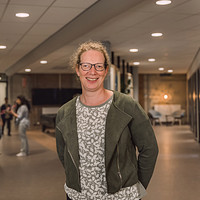
dr. ir. Gerdine Meijer
Teamleader

Dennis Borger
Senior Researcher

dr. ir. Henk Kortier
Senior Researcher

ir. Joris Kampman
Senior System Engineer and Researcher

Mark Reiling
Senior Researcher

Aleksandrs Izmailovs
Researcher

Amin Zaami
Project manager

dr. ir. Ard Westerveld
Researcher

Ayham Alharbat, MSc
Researcher/lecturer
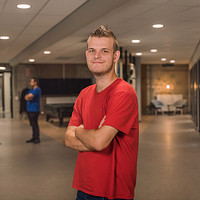
ir. Benjamin van Manen
Researcher/lecturer

Camille Buschman
Researcher

Chandan Kumar Rajendra, MSc
Researcher

Clint Scholten
Project manager

Daniël Logmans
Researcher
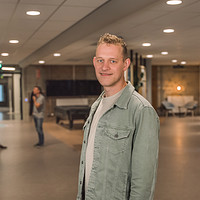
Dion Zwakenberg
Researcher

Eliyas Kidanemariam Abraha
Technical trainee

Fatima Yousif Rustamani
Technical trainee

Gayathri Dhanapal
Technical Trainee

ing. Geertjan Middelkamp
Researcher

Gerjen ter Maat, MSc
Researcher
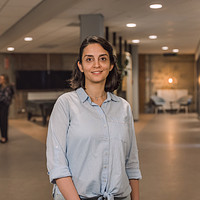
Hanieh Esmaeeli, MSc
Researcher

Henri Huisman
Project Manager

Jason Buitenhuis
Fast Forward Trainee Communication

ir. Joris Spikker
Researcher

ir. Koen Freriks
Technical Trainee

Kousheek Chakraborty
Researcher

Lex Mulder, MSc
Researcher

Maaike Hillerström, MSc
Project manager

Marharyta Balabaieva
Project support

ir. Matthijs van der Meulen
Researcher

Max Kivits
Researcher

Mera Grutterink
Project Support

Milan Wolffgramm, PhD
Business Developer
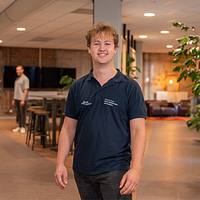
Nils Rublein, MSc
Researcher

Pantelis Manouselis
Researcher

Peter Ebben, MSc
Researcher/lecturer

dr. ir. Rahul M R
Researcher

Raj Kumar Ashokan
Technical Trainee

René Meijering
Researcher

Roy Smit
Lab Technician

Seyed Hojat Mirtajadini
Researcher
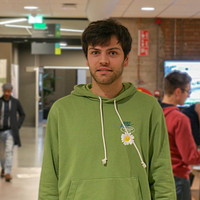
Stephan Jaspar, Msc
Researcher

Thijs Hof
Researcher

Verena van Oosten
Management Assistant

ing. Victor Sluiter
Researcher

Willem van Rossum
Researcher

Akhilesh Naurathae
Researcher

Maya Aghaei
Senior researcher

Youssef AbouDorra
Researcher
Samenwerking lectoraat, werkveld en onderwijs
Ons doel is om een brug te slaan tussen praktijkcases en de leeromgeving van Saxion. Studenten werken aan praktijkprojecten uit het werkveld, worden begeleid door onze experts en maken gebruik van onze ultramoderne laboratoriumfaciliteiten om zich te ontwikkelen tot de onderzoeksingenieurs van vandaag en morgen.
Relevante opleidingen
Het lectoraat is betrokken bij de volgende opleidingen:
Ontdek meer over jouw mogelijkheden als student
Lees meerSmart Mechatronics and Robotics in the media
- 28 May 2024 - Infrasite: Netbeheerder maakt robothond die gaslekken kan opsporen
- 22 May 2024 - NOS Journaal: Robothond om gaslekken op te sporen (vanaf 7:22).
- 22 May 2024 - RTV Oost: Robothond gaat helpen bij het opsporen van gaslekken: "Lass-E heeft een gevoelige neus
- 22 May 2024 - Telegraaf: Uniek: robothond checkt alle gasleidingen op lekkage, straks ook bij u in de voortuin
- 21 May 2024 - Nu.nl: Netbeheerder Alliander maakt robothond die gaslekken opspoort
- 24 January 2024 - Science Guide: “We moeten niet tevreden zijn met huidige omvang van hbo-onderzoek”
- 14 May 2023 - NL Times: New Dutch drone can find hidden graves and buried bodies
- 19 July 2023 - RTV Oost: Sciencefiction? Saxion ontwikkelt blusdrones: "Dit kan het verschil zijn tussen leven en dood"
- 4 August 2023 - De Stentor: Deze onderzoekers werken aan een robothart, met Twents tintje: ‘Dit wordt echt heel revolutionair’
- 10 May 2023 - RTV Oost:
Deze Twentse drones moeten in de toekomst vermiste personen gaan opsporen
-
9 May 2023 - Algemeen Dagblad: CSI-drone ‘leert’ in Bentelo stoffelijke overschotten zoeken: speuren naar dertien biggen onder groene zoden
- 23 June 2021 - RTV Oost: Drones speuren in Enschede naar gevreesde eikenprocessierups
- 12 March 2021 - RTV Oost: Robotdrone 'The beast' van Saxion genomineerd voor Prins Friso ingenieursprijs
-
18 February 2021 - RTV Oost: Drie genomineerden Prins Friso Ingenieursprijs werken allemaal in Overijssel
-
17 February 2021 - Tubantia: Twee Twentse ingenieurs strijden om prestigieuze Prins Friso Ingenieursprijs 2021
-
17 February 2021 - KIVI: Finalist Prins Friso Ingenieursprijs 2021- dr. ir. Abeje Mersha
-
20 January 2021 - De Ingenieur: Drie genomineerden Prins Friso Ingenieursprijs















































